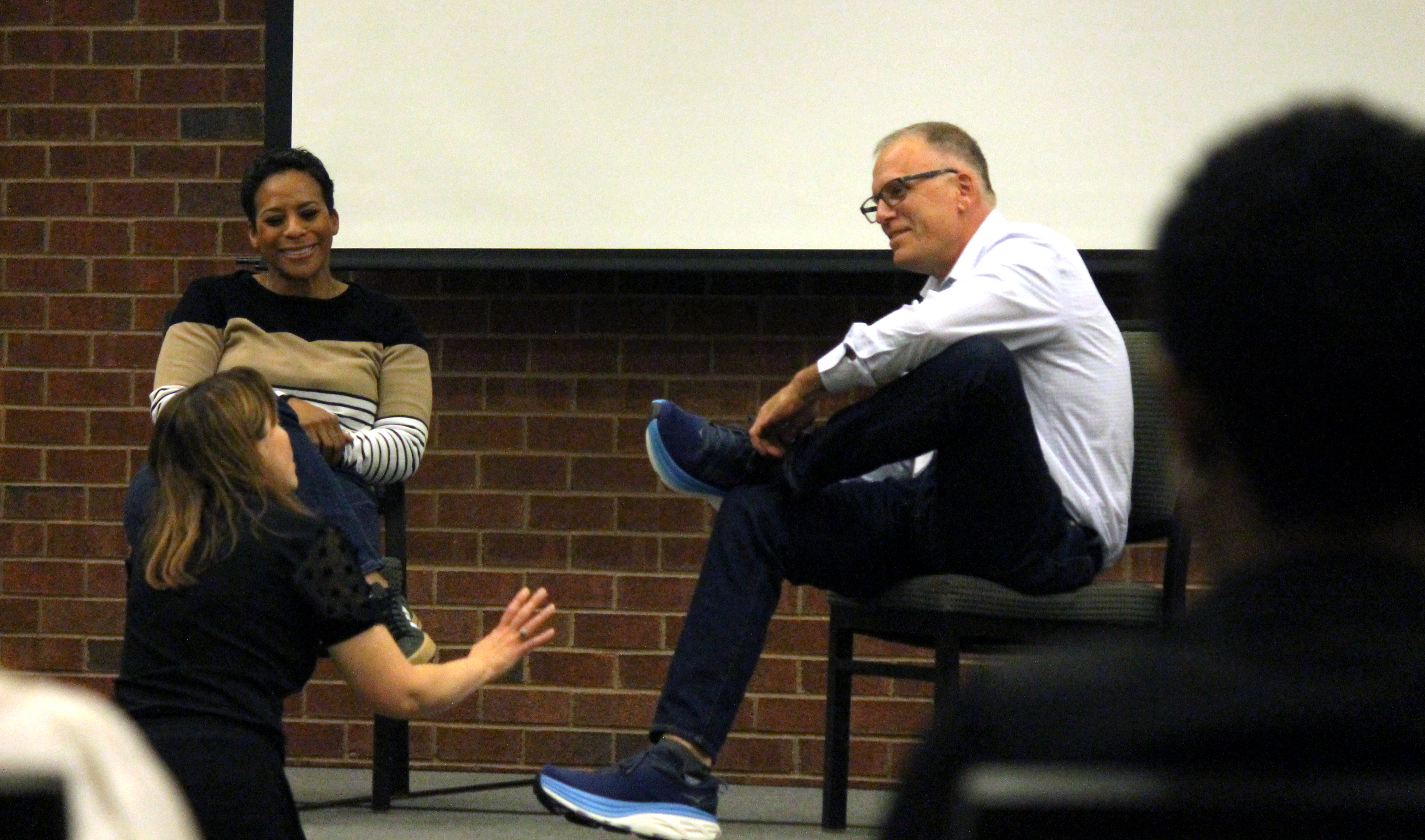Unleashing the Power of Improv in Civic Fellows
Improvisational theater is not often connected to the office environment, but it takes center stage in the Civic Fellows program.
A workshop on improvisational acting has long been a part of the Fellows’ curriculum, and Paula Pazderka and Andrew Aghapour have led emerging leaders through the activities for the last several years. “Improv is not only fun; it’s a way to train our minds to become more present when collaborating with others,” said Aghapour.
Aghapour and Pazderka direct participants through acting exercises, keeping the mood light, often pausing to offer suggestions or re-direct participants. Some Fellows often feel improvisational acting is outside of their comfort zone. After one activity, Pazderka tells the group: “I want to show you that you can push past your limits. We fail here, sometimes,” she said, “and that builds leadership skills, too.”
As Pazderka and Aghapour lead the activities, they pause to point out connections between things players struggle with in the scene and real-life struggles leaders often encounter. One example is during an activity called “Yes, And,” where players must respond to what their partner says with the phrase and build a scene from there. In addition to listening skills, the activity cultivates an elastic approach to challenges. “In the workplace, it’s easy to default to saying ‘no,’ ‘yes but,’ or ‘maybe instead,’ and this can stifle creativity,” said Aghapour. “Taking an affirmative approach to communication can make a person a better leader by helping them listen more carefully, support their colleagues and constituents, and think creatively about solutions.” The activity encourages teamwork, as partners work together to create a scene.
Not only is the workshop an exercise in leadership, but it is also an effective relationship-building exercise amongst the Fellows as well. During the workshop, you can see Fellows laughing, running, and bonding as walls come down and the activities continue pushing them out of their comfort zones. Many participants form relationships during the program and maintain those relationships into the future.
“Many Fellows have told us that our workshop has had a lasting impact on their approach to communication,” said Aghapour. “We teach leaders how to bring affirmation, deep listening, and creative collaboration into their interactions with others, and we often hear that a small technique—like repeating what a person has just said, or avoiding “yes, but” statements—has been useful for them over the years.”
Although sometimes silly or challenging at the moment, the acting exercises plant seeds of wisdom for leaders to take back to their workplaces. “Over the years, I have come to appreciate the impact that the Fellows have on our North Carolina communities as well as their unique professionalism, acumen, and dedication to service. The people we work with are by far the most rewarding part of this for me,” said Aghapour.
Published April 22, 2024



